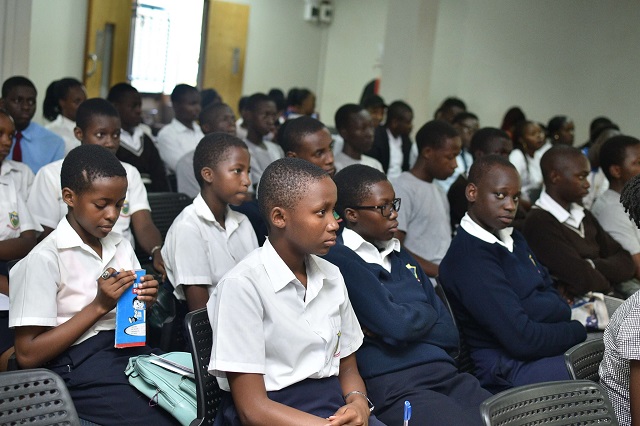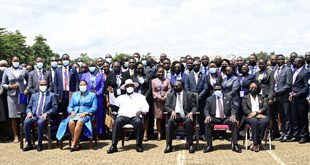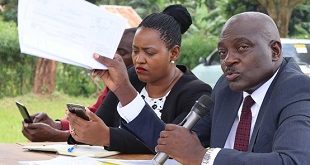
Kampala, Uganda | THE INDEPENDENT | The implementation of the new lower secondary school curriculum has been affected by the lack of instructional materials, reduced time schedules, and the shortage of teachers.
Beginning with this academic year, on the instructions of the Ministry of Education and Sports, all secondary schools were expected to commence conducting lessons under the new lower secondary school curriculum as revised by the National Curriculum Development Centre-NCDC.
The new curriculum comprises of among other things, conducting student-centred teaching, performing extensive practical and Information Computer Technology-ICT based lessons, a new teaching approach which aims at producing highly innovative and self-reliant students.
However, many schools sampled by Uganda Radio Network across the country are struggling to conduct lessons under the new curriculum due to lack of instructional materials. Many do not have learning guides, assessment frameworks and student’s textbooks, among others.
Andrew Akol, the Director of Studies at Centenary High School in Nyendo, Masaka municipality says that despite the significance of the new curriculum towards producing highly competent students, the implementation is still slow. He equally points to the lack of instructional materials and limited knowledge among teachers.
Robert Wozemba, the Director of Studies at Blessed Sacrament Kimanya Secondary School, also says they are yet to get the required teaching materials for effecting learning under the new curriculum.
Wozemba who was among the teachers that attended the regional orientation training by National Curriculum Development Centre, says they expected the Ministry of Education to directly send-in all the materials, a process they have not expedited.
At Luweero Central Secondary School, Vincent Kakooza, the geography teacher explained that unlike the old curriculum, the new curriculum is student-centred and encourages critical thinking. Kakooza notes that they were able to assess the teaching materials from the National Curriculum Development Centre website (www.ncdc.go.ug) to kick start the implementation after failing to attain hard copies.
However, some schools which had noticed that the materials were uploaded have since been duped by vendors who are selling the freely downloaded materials at 150,000 Shillings each. Steven Ssemyalo the Deputy Headteacher of New Life Secondary School is one of those who have accessed the materials through this channel.
At Kitgum Comprehensive College, they were able to download soft copies from the and NCDC website. However, Charles Odong Canwat, the school headteacher stresses that the process is costly. Canwat says most of the material is bulky, contains Up to 180 pages, making it very expensive to produce to match the numbers of teachers.
Besides reading materials, most schools don’t have laboratory apparatus and equipment which makes the envisioned integration of skills and knowledge a dream in a mile. Ssemyalo says that his school and many others lack gadgets to enable Information Communication and Technology integration, a prerequisite for the implementation of the new curriculum.
At Kitante Hill School, Catherine Onen the headteacher says that enrollment of the new curriculum is going on well but they are struggling with some subjects. For instance, they have not begun teaching Kiswahili due to lack of teachers.
“Before we taught French and Literature but since those two are not electives we have to look for a Kiswahili teacher before those lessons. Otherwise, everything else is going on well,” Onen said. She added that they have been forced to reschedule the laboratory hours previously allocated to the senior one class because now, the class has to spend more time in the laboratory than before.
However, Dr Grace Birungi Baguma, the director of the National Curriculum Development Centre-NCDC says that the available teachers will teach in more than one school.
“We have trained 1,800 teachers. According to the new curriculum, Swahili will be taught twice a week. A trained Swahili teacher can easily teach in more than one school,” Dr Baguma said.
The struggle and confusion by two arms of government -parliament and the education ministry-is yet another factor hampering the entire process leaving teachers, students and parents in a state of disarray. Canwat, from Kitgum, notes that by Friday, the school had no stand on whether to proceed with the implementation or not even when students had arrived for studies.
In some other schools, teachers were still scheming and planning what to teach as those who trained in the curriculum recently were still training their colleagues and generally, no learning took place.
At Wakiso school for the deaf, teachers were still tangled, on the menu of the curriculum. Stella Nantongo, one of the teachers notes that earlier, they had been told that in schools for the deaf, sciences like physics, chemistry, and biology had been replaced by general science.
“We thought that those subjects had been stroked off but then some other people are saying that general science is to be done by the blind and those in prison which has drawn confusion. Our headteacher is going to consult on the matter,” Nantongo says.
******
URN
 The Independent Uganda: You get the Truth we Pay the Price
The Independent Uganda: You get the Truth we Pay the Price


